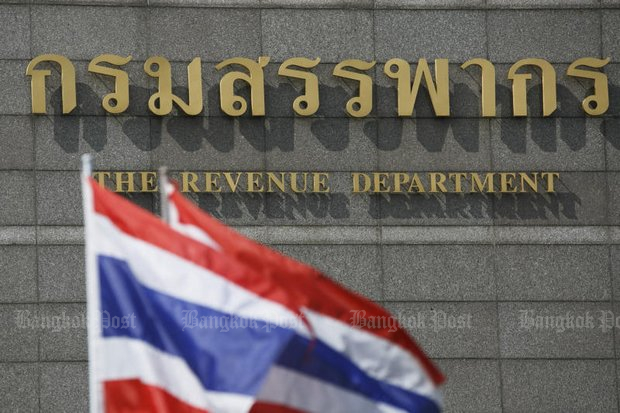
Is this government becoming broke and hatching a new "sin tax" plan to force allegedly sinful consumers like us to pay more? I couldn't help but raise this speculation with a friend over possible price hikes in alcohol, cigarettes and coffee, when new excise tax rates take effect this Saturday.
Driven by its divine mission to discourage people from drinking and smoking, the nanny state of Thailand has repeatedly increased alcohol and cigarette taxes, dubbed sin taxes, for years. Consumers have been forced to bear the brunt of increasingly expensive beer, wine, liquor and cigarettes.
The Excise Department has defended its latest tax regulation, saying this is not an attempt to increase the government's revenue. Given that the state's tax collection has fallen below its targets in recent years while the regime's spending on military hardware and weapons have been growing, I'm not convinced.

Surasak Glahan is deputy editorial pages editor, Bangkok Post.
Nor am I persuaded by the rhetoric, or the cliche, that this can promote good public health or that it reflects a need to "create a fairer tax system" as claimed by the department.
The worst part of this tax plan is its secretive nature. The department had been working on it for months, but has not publicly revealed the exact excise tax rates that will be imposed on different kinds of alcohol. Consumers have no idea how the new structure will affect them.
Many people have made noise on social media over possible price hikes and how they can cope with them. And no one should say they shouldn't drink if they are poor or cash-strapped. It's discrimination.
Any price hikes can also affect owners and workers in restaurants, bars and grocery stores who can expect a lower numbers of customers.
The department has tried to downplay consumers' anxiety, saying the new taxes wouldn't have "significant implications" on pricing. Really?
Under the new structure, alcoholic drinks will be taxed based on recommended retail prices. This will replace the existing excise tax computation which is based on ex-factory price and cost, insurance and freight values.
The new tax rates will also be based on the degree of alcohol contained, meaning a higher degree will be subject to a higher tax. Oddly, wine products priced at 1,000 baht per bottle or more will be subject to a tax rate higher than those priced lower than 1,000 baht. This has prompted suspicion that the new rule will benefit local wine manufacturers whose cheaper wine products will be subject to lower taxes.
The department will also hikes ceilings for taxes based on product volume by as much as 10 times the existing rates.
According to Forbes Thailand magazine, there will also be significant increases in licence fees. For instance, the alcohol manufacturing fee will be increased to 300,000 baht per year from 5,000 baht. A licence fee for retail sale will be increased to 50,000 baht from 2,000 baht.
If manufacturers and sellers are forced to pay more, wouldn't they pass on the burden to consumers? I would think so.
It's worse for smokers. Cigarette prices will increase by as much as 30 baht a pack. Luckily, I've quit smoking.
True, making alcohol prices too affordable can encourage consumption among youngsters and the underaged. But alcohol prices in Thailand are already high, while consumers have a limited choice of available products. The existing law has made it difficult for small-scale craft beer producers to enter the local market while favouring industrial-scale beer producers.
This new tax rates will hardly affect big businesses that will offset higher taxes with higher retail prices charged on consumers. The state will likely collect more money, given that it has missed its revenue targets. For instance, the government's collection of value-added tax (VAT) on domestic purchases for 10 months leading to July was 6.3% below target. The Revenue Department also missed its revenue target for the October-July period by 4.1%. The Excise Department has reportedly planned to increase its revenue to 600 billion baht next year from 550 billion baht this year.
Alcohol price hikes will rub salt into the wound. Instead of lecturing people on what kind of drink they should pour into their mouths and taxing them more if they don't listen, the government should instead be more prudent in its spending.
For now, consumers have to wait for an announcement on the new applicable tax rates by the Excise Department tomorrow to find out whether they will affect retail prices. Many of us are already feeling the pinch of a stagnant economy. We shouldn't have to pay for wanting a drink.
